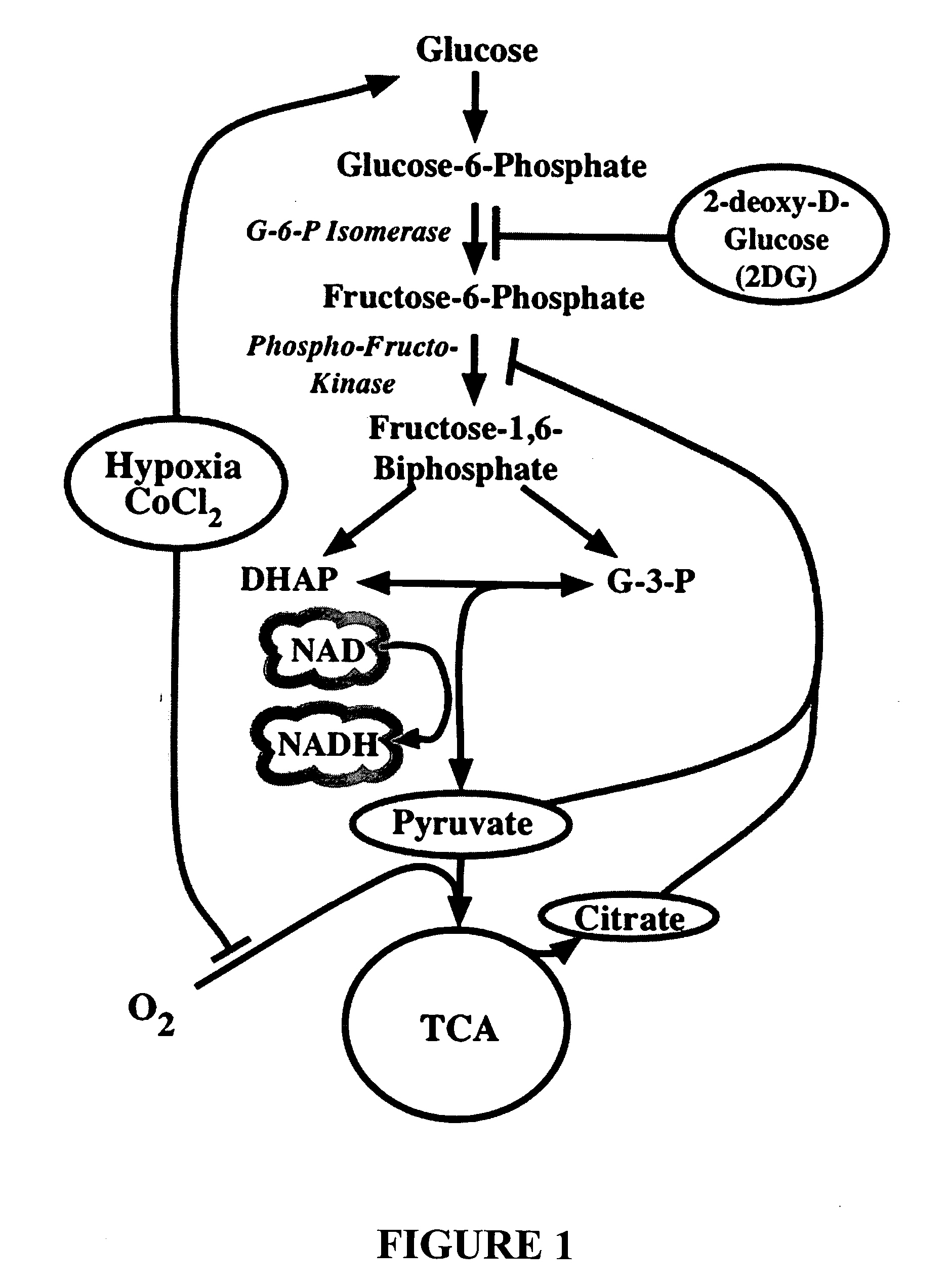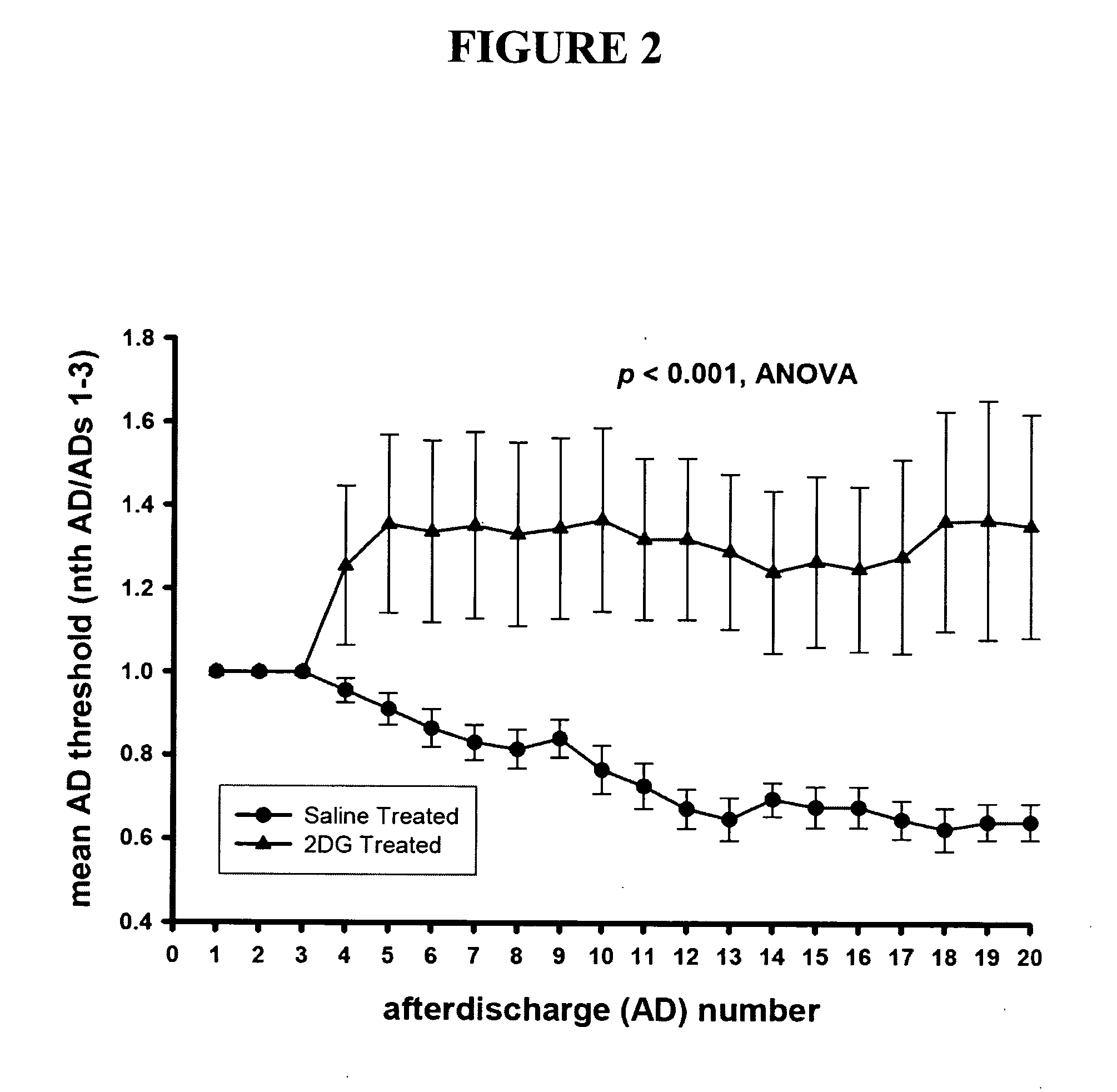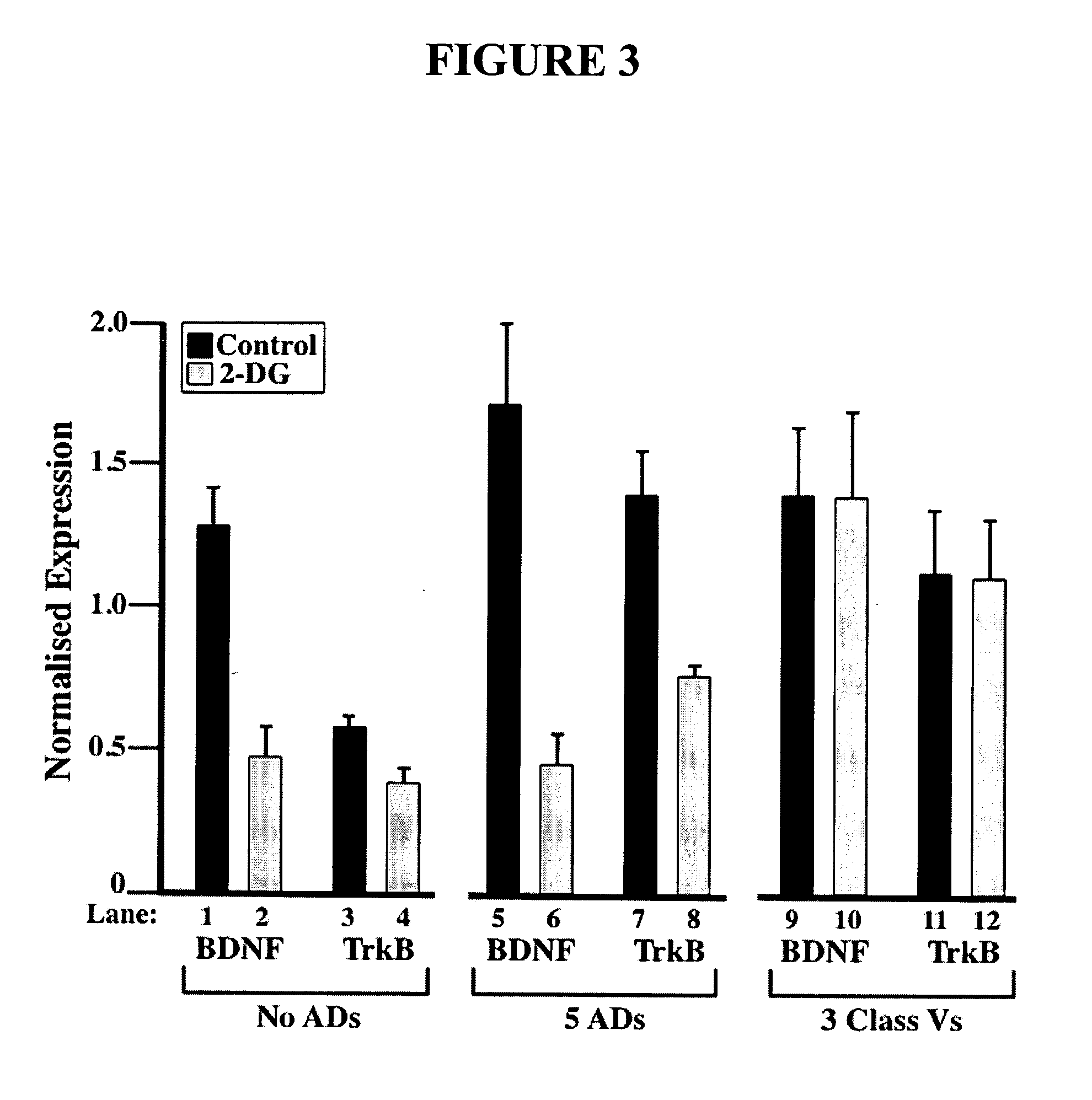Metabolic-based methods for modulating gene expression
a gene expression and metabolic technology, applied in the field of modulating gene expression, can solve the problems of insufficient evidence in the art that cellular metabolism or energetics can modulate the expression of nrse/nrsf regulated genes, and achieve the effects of reducing the amount of nadh produced, reducing the depletion of nadh, and modulating cellular gene expression
- Summary
- Abstract
- Description
- Claims
- Application Information
AI Technical Summary
Problems solved by technology
Method used
Image
Examples
example 1
[0091] Neurological disorders like epilepsy, like most disorders, are associated with changes in gene expression. Many genes have been implicated in the process of epileptogenesis. For example, the TrkB receptor and its ligand, the neurotrophin Brain Derived Neurotrophic Factor (BDNF) have been shown to be essential for induction of limbic epileptogenesis by kindling.
[0092] Because epilepsy has been successfully treated in children using a “ketogenic diet” that restricts carbohydrate intake, and it has recently been shown that inhibition of glycolysis by 2-deoxyglucose (2-DG) can be used as an effective epilepsy treatment (in co-owned and co-pending U.S. patent application Ser. No. 11 / 155,200, incorporated by reference herein), the effects of 2-DG on TrkB and BDNF gene expression were assayed in rat brain slices.
[0093] Specifically, mRNA was extracted from hippocampus tissue from rats treated with 2-DG or untreated control rats subjected to kindling stimulation to mimic epilepsy. ...
example 2
[0096] The results in Example 1 demonstrated that inhibiting glycolysis using 2-DG could affect expression of several genes in rat hippocampus. An analysis of these genes revealed that a subset of these genes was known to be regulated by the RE1 / NRSE regulatory / inhibitory element recognized by the transcription repressor NRSF. Roopra et al., 2001, Molecular Interventions 1: 219-28. NRSF represses BDNF levels in normal rats and tempers peak expression levels of BDNF in rats induced to have seizures with kainic acid.
[0097] To investigate whether inhibiting glycolysis could modulate gene expression controlled by NRSE / NRSF, a plasmid (pMT-NRSF) expressing the 1st 600 residues of NRSF (the HZ4 fragment, as disclosed in Chen et al., 1998, Nat. Genet 20: 136-42) fused to the gal4 DNA binding domain (pMT-gal4, as disclosed in Roopra et al., 2000, Molec. Cell Biol 20: 2147-57) was transfected into JTC-19 rat lung fibroblasts (a non-neuronal cell line that exhibits a robust and well characte...
example 3
[0101] The results obtained in the experiments described in Examples 1 and 2 above established that glycolytic inhibition was capable of effecting changes in cellular gene expression. One consequence of glycolytic inhibition is to change the relative concentrations of the oxidized (NAD+) and reduced (NADH) forms of nicotinamide adenine dinucleotide.
[0102] It was recognized in the art that the transcriptional co-repressor C-terminal binding protein (CtBP) confers redox sensitivity to a number of transcription factors including ZEB (Zhang et al., 2002, Science 295: 1895-7) and Hdm2 (Mimezami et al., 2003, Curr Biol 13: 1234-9). CtBP2 binding to a number of transcription factors is regulated by NADH levels. This regulation may be due in part to the ability of CtBP2 to dimerize in the presence of the dinucleotide. This co-factor has high homology to 2-hydroxy-acid dehydrogenases and is able to bind NADH with nanomolar affinity and Kd values approximating free cellular concentrations of...
PUM
| Property | Measurement | Unit |
|---|---|---|
| areas | aaaaa | aaaaa |
| concentrations | aaaaa | aaaaa |
| energy availability | aaaaa | aaaaa |
Abstract
Description
Claims
Application Information
 Login to View More
Login to View More - R&D
- Intellectual Property
- Life Sciences
- Materials
- Tech Scout
- Unparalleled Data Quality
- Higher Quality Content
- 60% Fewer Hallucinations
Browse by: Latest US Patents, China's latest patents, Technical Efficacy Thesaurus, Application Domain, Technology Topic, Popular Technical Reports.
© 2025 PatSnap. All rights reserved.Legal|Privacy policy|Modern Slavery Act Transparency Statement|Sitemap|About US| Contact US: help@patsnap.com



